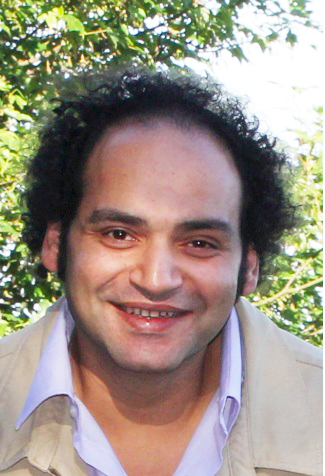
By Linda Gradstein/The Media Line
Senait Demisse was only seven when several female members of her family carried out the traditional practice of female genital mutilation (FGM) in her village in Ethiopia. She doesn’t remember much about that day – only that she tried to run away.
“There were two other girls with me and they were cut first,” she told The Media Line. “When I saw the blood and what they did to the other two girls, I ran out of the house. They ran after me and caught me, and after that I can’t remember anything.”
She says that she does remember afterwards it being “very painful”.
“I don’t remember the pain in that moment, but I can only imagine how horrible this torture is.”
This week marked the International Day of Zero Tolerance to Female Genital Mutilation (FGM), a United Nations sponsored celebration. But in much of Africa, and in large parts of Asia, the practice remains widespread. In Egypt, a recent study by UNICEF found that its prevalence has dropped from 95% to 74% in the past 10 years. In countries like Ethiopia, Somalia, Eritrea,Djoubouti, Senegal and Burkino Faso, it is still well over 90%.
According to the World Health Organization, between 100 million and 140 million girls and women are living with the consequences of FGM. According to the group, FGM is defined as “all procedures that involve partial or total removal of the external female genitalia, or other injury to the female genital organs for non-medical reasons.”
Dozens of girls have died of complications after the procedure. Childbirth is often dangerous for mutilated women, and some develop fistulas, which can leave them incontinent.
The procedure makes sexual relations painful, and can lead to frequent infections. The idea, says Walter Lutschinger, the director and co-founder of the Desert Flower Foundation, an organisation that fights against FGM, is to keep women faithful to their husbands.
“Even today, many men refuse to marry women who are not cut,” Lutschinger told The Media Line. “They worry that if a woman can enjoy sex, she will not be faithful. In many cases, these women are also victims of forced marriages.”
In many cases, the girl’s parents need the “bride price”, the money paid to a girl’s family by the husband’s family when she is married off. In other cases, the family wants to “preserve her honour”.
Most of those carrying out the practice are Muslims and there are contradictory interpretations about whether female circumcision is mandated by the Quran. As in Judaism, male circumcision is seen as a religious obligation.
When it comes to women, some say that is mentioned in the Sunna, stories about the life of the prophet Muhammad. Others say it is a tribal practice that predates Islam by centuries.
In recent years, some women have tried to reverse the effects of FGM. The Desert Flower Foundation seeks to raise international awareness of the issue and to support women who have undergone the procedure. They have also opened a hospital in Berlin to reverse the effects of the mutilation.
A similar hospital in France has already operated on more than 5,000 women. The Desert Flower Foundation has already opened a hospital in Berlin, and dozens of women are on the waiting list for the procedure. Other hospitals are planned throughout Europe.
Senait Demisse was one of the first women to undergo the reconstruction procedure in Berlin.
“I used to feel that I was different than women who had not been cut, but now I feel I am the same as them,” Demisse said. “It is a feeling of great freedom.”
She is engaged to be married, and looking forward to beginning her new life.
Linda Gradstein is the Middle East bureau chief for The Media Line.




